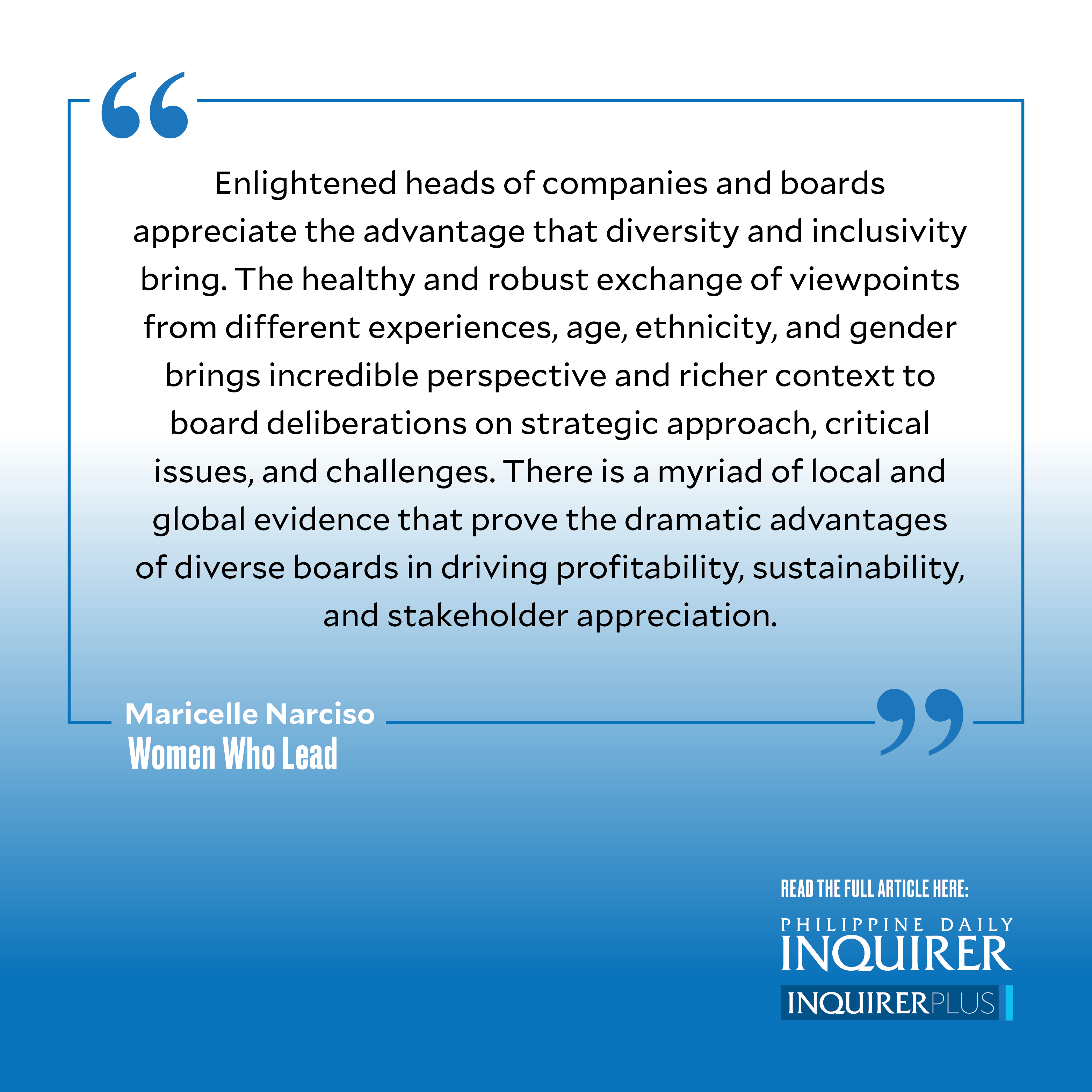
Believe it or not, men’s and women’s brains are wired differently. Interestingly, the New York Times bestseller “The Female Brain” by Louann Brizendine highlights the fact that women are naturally predisposed to be more compassionate, more patient, and more attentive to details than men, among many other amusing realizations that she cites in her book (such as why girls go to the bathroom together, why females sleep and wake up earlier than males, etc).
And precisely because of these very real differences between men and women, advocating for gender diversity truly matters.
Enlightened heads of companies and boards appreciate diversity and inclusivity’s advantages. The healthy and robust exchange of viewpoints from different experiences, ages, ethnicity, and gender brings incredible perspective and richer context to board deliberations on strategic approach, critical issues, and challenges. Moreover, a myriad of local and global evidence proves the dramatic advantages of diverse boards in driving profitability, sustainability, and stakeholder appreciation.
It is noteworthy that three of its nine-member board of advisors are women in the Philippine Navy, a male-dominated sector of the Armed Forces. The Navy’s board chair, retired Vice Admiral Eduardo Maria Santos, says, “The United Nations’ Fifth Sustainable Goal is Gender Equality. This means equality in opportunity, equality in work, and pay equality. But, in the Philippines, long before these UNSGs, we have had women occupying board seats in private companies and government and nongovernment corporations. And in my case, I can say that I have benefitted from the work ethic, the commitment, and the creativity of the women members of my boards, not just with the Philippine Navy but also with the Bagong Bayani Foundation Inc.”
He adds: “I believe the diversity in age, gender, and professional experience of the individuals who contribute to the Philippine Navy Board deliberations elevate the quality of our management strategy, adding substance and depth across various subject matters, especially on the stakeholder perspective relating to the Navy.” The three women who sit on the Philippine Navy board are Doris Magsaysay-Ho, Margarita Songco, and this author.
It is important to emphasize that diversity matters on boards of private for-profit corporations and nongovernment organizations (NGOs). Often, private family-owned corporations appoint female family members to their boards as a token gesture toward diversity. It’s a good start at variety. But the real test is when boards open up independent directorship to more women to achieve more balanced representation in their boards. A best-in-class example is the Ayala Group of Companies’ Acen (formerly AC Energy), where women comprise 40 percent of their board membership.
Recently, a group of women directors convened a new organization dedicated to advocating for increased women’s representation in Philippine boards, where currently only 17 percent of board seats are held by women. Called NOWCD, the NextGen Organization of Women Corporate Directors aspires to be a catalyst for driving good governance and inclusive stewardship through a more equitable gender balance in corporate and foundation boards in the Philippines. Its mission is to develop highly qualified women directors to become drivers of visionary and effective boards, encouraging NGOs and private corporations to embrace diversity as the answer to sustainability and good governance.
NOWCD was founded to create a pipeline for women directorships, deserving women directors coming out of the proverbial closet for board opportunities. NOWCD also provides essential training and networking for women who have reached the top of their C-suite careers and are keen to move up to serve as B-suite directors.
——————
Maricelle Narciso is a former general manager of PepsiCo Philippines and now sits in various boards. She is also a trustee of NOWCD, a member organization of PhilWEN.
——————
Women Who Lead is an initiative of the Philippine Women’s Economic Network (PhilWEN).

